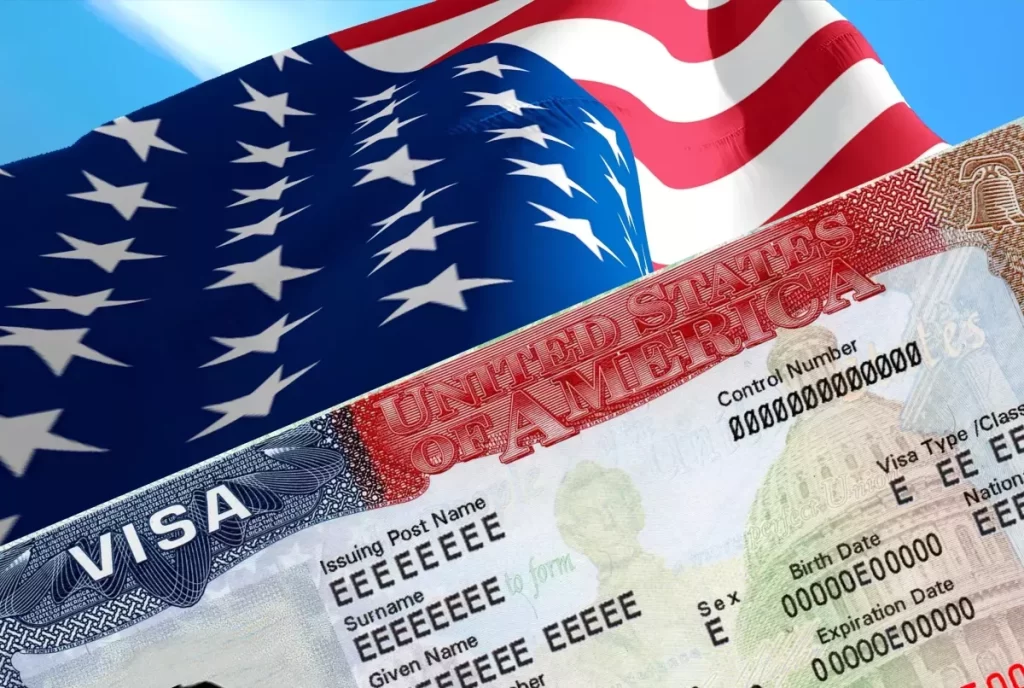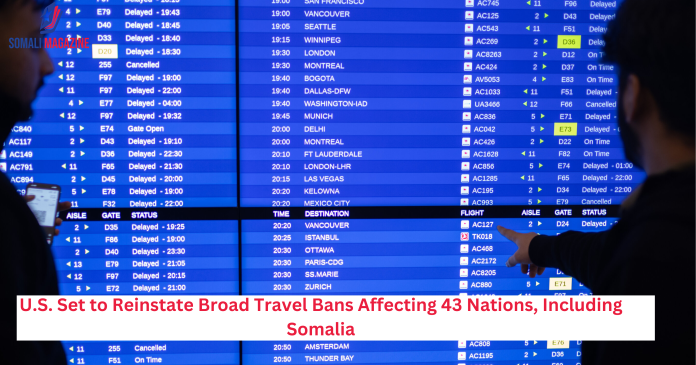Facebook Twitter (X) Instagram Somali Magazine - People's Magazine
The proposed restrictions, reminiscent of Trump’s previous travel bans, could strain diplomatic ties, impact counterterrorism efforts, and spark legal challenges
The United States is poised to impose sweeping travel restrictions on citizens from 43 countries, including Somalia, as part of a revived policy from the Trump administration aimed at tightening immigration controls, according to a report by The New York Times.
A draft version of the policy, currently under review by U.S. diplomatic and security officials, divides the affected nations into three categories:
- Complete Travel Ban: Citizens from 11 countries—Yemen, Libya, Syria, Somalia, Sudan, Afghanistan, Bhutan, Venezuela, Iran, North Korea, and Cuba—would be entirely barred from entering the United States.
- Strict Visa Restrictions: Nationals from Russia, Belarus, Haiti, Laos, Myanmar, Pakistan, Sierra Leone, Turkmenistan, Eritrea, and South Sudan would face increased scrutiny, including mandatory in-person interviews as part of the visa application process.
- Indefinite Entry Ban or Heavy Restrictions: Several other countries, including Angola, Antigua and Barbuda, Benin, Burkina Faso, Vanuatu, Gambia, the Dominican Republic, the Democratic Republic of the Congo, Zimbabwe, Cape Verde, Cambodia, Cameroon, Congo, Liberia, Mauritania, Malawi, Mali, São Tomé and Príncipe, Guinea, Saint Kitts and Nevis, and Chad, would either face a complete ban or indefinite entry restrictions.
The draft proposal is under review at the U.S. State Department, where officials are evaluating its potential diplomatic and security implications. There are concerns that including certain countries, such as Somalia, in the ban could strain international relations and hinder cooperation on counterterrorism efforts.
This proposed policy follows an executive order signed by President Donald Trump in January 2025, directing U.S. officials to assess and identify countries with “deficient vetting and screening standards” for incoming travelers. The new measures bear a strong resemblance to Trump’s previous travel bans during his first term, which were challenged in court and later revoked by the Biden administration in 2021. The Supreme Court eventually upheld a revised version of the ban.

If implemented, the restrictions are likely to face legal challenges, particularly regarding their impact on green card holders and individuals who already possess valid U.S. visas. Advocacy groups and legal experts have raised concerns that such measures could lead to prolonged court battles similar to those seen during Trump’s first presidency.
Diplomatic officials are also weighing the potential backlash from affected nations, particularly those with strategic ties to the U.S. in counterterrorism, trade, and regional stability efforts. Countries such as Somalia have historically worked with the U.S. on counterterrorism initiatives, and barring their citizens entirely could complicate ongoing security collaborations.
The U.S. government has not yet confirmed when the policy will take effect or whether it will be modified before implementation. However, sources familiar with the matter suggest that the final version of the restrictions will be determined within the coming weeks.
As discussions continue, international observers and affected communities remain on high alert, anticipating the potential consequences of these renewed travel bans. Should the policy proceed as drafted, it is expected to spark renewed debate over the balance between national security and human rights, with significant political and legal ramifications in the U.S. and abroad.

